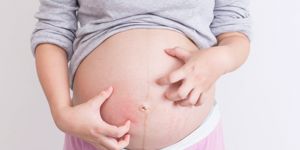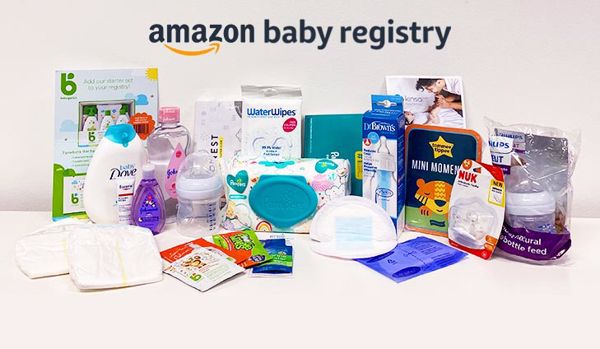Itchy skin can be a joint discomfort that pregnancy brings, but it can also be a symptom of something more serious. It is crucial to notify your care provider of any type of itching so that they can run tests and rule out any severe pregnancy complications.
The most common reason itching occurs during pregnancy is the large number of hormones and other chemical levels in the blood. The stretching of your skin to accommodate your growing baby can cause quite a bit of itching. There are other causes of itching in pregnancy, and we will cover each of those and tips and tricks to help with them.
PUPPS
A prevalent yet low-risk cause of itching is Pruritic Urticarial Papules and Plaques of Pregnancy or PUPPS. PUPPS can also be known as polymorphic eruption of pregnancy or toxemic rash of pregnancy. Whatever the name you have heard it called, it is a harmless rash that occurs most commonly in the late 2nd or 3rd trimester.
It first appears in the stretch marks on your belly but can spread to other body regions, including arms, legs, breast/chest, back, and buttocks. There is no known cause of this rash in pregnancy, but one guess is that when the skin stretches too quickly, the cells cannot keep up, and tissues get damaged, leading to this interesting allergic-like reaction called PUPPS. Another theory is that it is your body’s immune response to your baby. This does not commonly occur, but sometimes, the cells from your baby move into your blood and tissues, which might cause an immune reaction. One last guess is that the rash comes from higher amounts of testosterone during pregnancy.
Whatever the cause for PUPPS, it usually goes away on its own within 3-4 weeks once the baby(s) is born. Identifying that your rash is PUPPS is sometimes hard because the rash often looks like hives. Typically, the rash will be a combination of raised lumps, blisters, hives, and red, inflamed areas on your belly. A good thing to note is that this rash usually does not involve your belly button. Other things to look for are a yellowish discharge that leaks from the blisters when you itch them, crusty skin, itching so severe that it interrupts your day or sleep, and the rash spreading to other body areas.
In most cases, not much can be done to help with PUPPS, but here are some ideas if you want to try them. First, adding Dandelion tea or tincture to your everyday diet can help with the liver, which is often the cause of some of the weird itching that comes with pregnancy. Cool showers rather than hot ones help to curb inflammation. Adding oatmeal to the bath can be another good tool to soothe the skin. Moisturizing the skin can also be helpful. Beef tallow-based moisturizers, and even petroleum jelly can be beneficial for the relief of itchy skin. Wearing loose-fitting clothing can help, and if all else fails and you are struggling a lot with this rash, you can get on a medication that can aid in relieving symptoms.
Pemphigus and Pemphigoid
Another less common cause for itching in pregnancy is Pemphigus and Pemphigoid, two autoimmune blistering disorders. Pemphigoid gestationis is the blistering disorder that affects pregnant individuals during pregnancy or the immediate postpartum. Like PUPPS, it often starts on the stomach but does spread outwards, but unlike PUPPS, the bumps eventually all turn into blisters. The biggest concern with Pemphigoid is that open wounds can lead to infection. They can cause breathing issues, affect sight, and lead to breathing issues. The only treatments available include corticosteroids, immunosuppressive medications, and biologic drugs.
Cholestasis
The last and more severe cause of itching during pregnancy is called Cholestasis. Cholestasis most commonly is related to itching on the palms of the hands and the soles of the feet. The cause of Cholestasis is liver disease, and Cholestasis can occur alongside pre-eclampsia. Other symptoms to watch out for with possible Cholestasis include jaundice or yellowing of eyes and skin, nausea, lack of appetite, and oily and foul-smelling stools. Because of the severe Cholestasis, we recommend that anyone experiencing itching call their care provider. Some of the impacts that Cholestasis can have on babies are preterm delivery, lung problems, and, in rare cases, stillbirth. You cannot do much to prevent Cholestasis, but we recommend liver support like dandelion root and dandelion tincture.
Whether you simply have PAPPS or stretching skin, it is crucial to let your care provider know you are experiencing any itching. From there, they will run all crucial tests and procedures to ensure you are in good health and that your baby is doing well.






